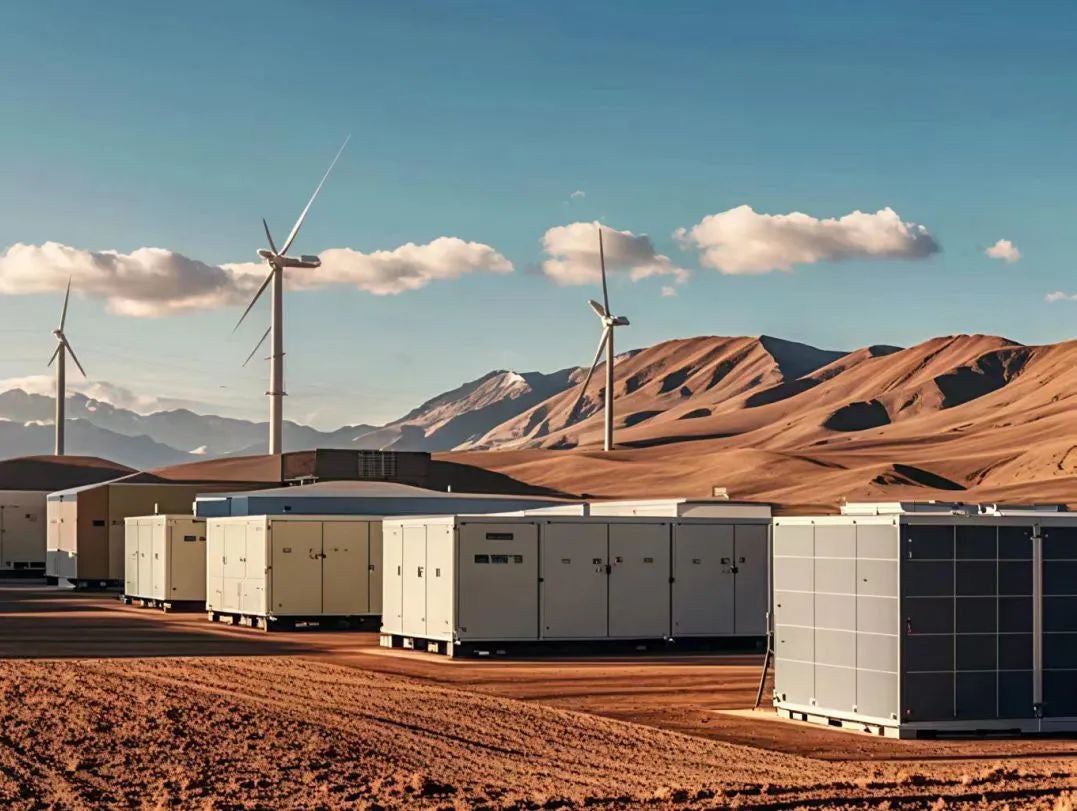
Lithium Iron Phosphate Batteries: Paving the Way for Sustainable Home Energy Storage in Europe
Subtitle: With growing interest in energy independence and sustainability, Lithium Iron Phosphate (LFP) batteries are becoming the preferred choice for European home energy storage solutions.
April 2025 | Global Energy Insights
As Europe accelerates its transition to renewable energy, homeowners across the continent are increasingly turning to energy storage solutions to optimize their solar power systems. Among the various battery technologies available, Lithium Iron Phosphate (LFP) batteries are emerging as a frontrunner due to their affordability, safety, and environmental benefits. This growing trend is reshaping the future of home energy storage and contributing to Europe's broader sustainability goals.
A Perfect Fit for Europe's Energy Landscape
Europe is at the forefront of the global green energy revolution, with countries such as Germany, Spain, and France leading the charge in adopting renewable energy sources like solar and wind power. However, one of the key challenges facing homeowners and businesses is how to store excess energy for use during times when the sun isn't shining or the wind isn't blowing.
Traditional battery technologies, such as lithium-ion batteries, have been widely used in residential energy storage systems. But with the increasing demand for cleaner, safer, and more cost-effective alternatives, Lithium Iron Phosphate (LFP) batteries are quickly gaining ground in the European market.
"LFP batteries are a game-changer for residential energy storage in Europe," said Emma Schneider, a senior analyst at Green Energy Insights. "Not only do they offer a much longer lifespan compared to traditional batteries, but they also provide a safer, more sustainable solution for homeowners looking to store solar energy."
Safety and Sustainability: Key Drivers of Adoption
One of the standout features of LFP batteries is their superior safety profile. Unlike traditional lithium-ion batteries, LFP batteries are less prone to overheating or catching fire, making them a safer option for residential use. With the increasing adoption of home energy storage systems, safety is a critical concern for homeowners.
"LFP batteries are inherently more stable, reducing the risk of thermal runaway or battery fires, which is particularly important when these systems are installed in homes," explained Schneider.
Beyond safety, the environmental benefits of LFP batteries make them an attractive choice. LFP batteries are made from abundant, non-toxic materials such as iron and phosphate, which are not only less harmful to the environment but also more affordable than the cobalt and nickel used in traditional lithium-ion batteries. This lower material cost makes LFP batteries a cost-effective option for homeowners looking to reduce their energy bills while contributing to a greener planet.
The European Push for Energy Independence
With rising energy costs and a growing concern about energy security, many Europeans are seeking ways to become more energy independent. Homeowners who install solar panels are now increasingly pairing them with LFP battery systems to store excess energy, ensuring that they can power their homes even during periods of low sunlight or grid outages.
The European Union has also been actively promoting energy independence through various policies and incentives, such as the "Fit for 55" climate package, which aims to reduce carbon emissions and boost renewable energy usage. In this context, LFP batteries offer a compelling solution, enabling homeowners to maximize their solar investments and reduce reliance on the grid.
"By integrating LFP battery storage with solar power, homeowners can achieve greater energy autonomy while lowering their carbon footprint," said Klaus Müller, a renewable energy consultant based in Berlin. "The ability to store solar energy for use at night or during cloudy days significantly enhances the value of residential solar systems."
Real-World Adoption: LFP Batteries in European Homes
Several European companies are already leading the way in integrating LFP batteries into residential energy storage systems. Leading solar and storage companies, such as Sonnen and BYD, have begun offering LFP-based home battery systems to European consumers. These systems not only provide a reliable energy storage solution but also promise lower maintenance costs and longer lifespans compared to traditional batteries.
For example, BYD's LFP battery technology is being used in home storage solutions that can store up to 10 kWh of energy, enough to power an average European household for an entire day. The company reports that their LFP batteries can last up to 15 years, providing a long-term, low-cost energy solution for consumers.
The Future of LFP Batteries in Europe
Looking ahead, the role of LFP batteries in Europe's home energy storage market is expected to grow rapidly. As more homeowners embrace solar energy and look for ways to store excess power, the demand for LFP-based storage solutions will continue to rise. Moreover, advancements in battery recycling and reusing materials will further enhance the environmental benefits of LFP technology.
The European Commission's "Green Deal" and commitment to achieving net-zero emissions by 2050 provide additional momentum for the widespread adoption of sustainable technologies like LFP batteries. As the cost of LFP batteries continues to decrease and technology improves, the potential for these batteries to transform the energy storage landscape in Europe is immense.
Conclusion
As Europe continues its transition to renewable energy, Lithium Iron Phosphate batteries are poised to play a key role in shaping the future of home energy storage. With their affordability, safety, and environmental advantages, LFP batteries offer a reliable and sustainable solution for homeowners looking to reduce their reliance on the grid and lower their carbon footprint. As adoption grows and technology continues to evolve, LFP batteries are set to become an integral part of Europe's clean energy future.
